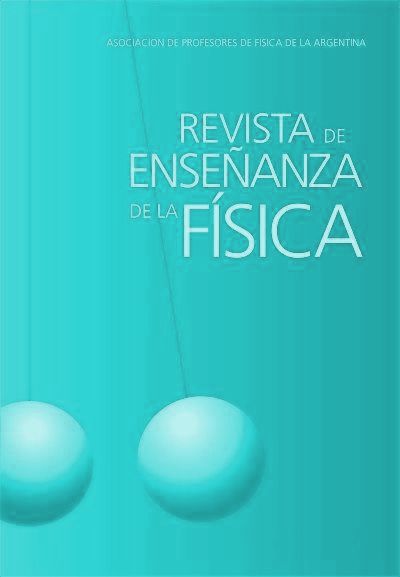Physics course curriculum: satisfaction, evaluation, and retention in higher education
Keywords:
Curriculum, Higher education, Modern and contemporary physics, Expectations, SatisfactionAbstract
In this study, we present the results of an investigation aimed at exploring the potential influence of students' satisfaction with the curriculum of an undergraduate Physics course and their retention in college. Specifically, we were interested in understanding whether the inclusion of Modern and Contemporary Physics (FMC) at the beginning of the Physics undergraduate program would have an impact on reducing student dropout. The research consisted of 40 students enrolled in the first or second year of the Physics Degree at the Institute of Physics of the University of São Paulo (IFUSP). Data collection was conducted through a closed-ended questionnaire, covering topics such as students' expectations prior to the start of the course, academic performance, satisfaction with first-semester subjects, satisfaction with the curriculum, and future expectations regarding the course. The main results revealed that the majority of students were satisfied with the subjects taken in the first semester (66.33 %) and with the course curriculum (91.89 %). Although students expressed interest in FMC content, no significant frustration was identified due to the non-inclusion of these topics in the early semesters of the program. Therefore, there is no evidence to suggest that the absence of these contents could be a reason for frustrations that might lead to student attrition from the course.
References
Adachi, A. A. C. T. Evasão de estudantes de cursos de graduação da USP: ingressantes nos anos de 2002, 2003 e 2004. Tese (Doutorado) — Universidade de São Paulo, 2017.
Andifes, A., Abruem, A. et al. Diplomação, retenção e evasão nos cursos de graduação em instituições de ensino superior públicas: resumo do relatório apresentado a Andifes, abrem e SESu/Mec pela comissão especial. Avaliação: Revista da Avaliação da Educação Superior, v. 1, n. 2, 1996.
Bean, J. P. Dropouts and turnover. The synthesis and test of a causal model of student attrition. Research in Higher Education, 12, p. 155–187, 1980.
Box Office Mojo. Interstelar. 2014. Disponível em: https://www.boxofficemojo.com/movies/id=interstellar.htm. Acesso em: 1 dez. 2018, às 14:32
Brasil. MEC. Base Nacional Comum Curricular. 2017. Disponível em: http://basenacionalcomum.mec.gov.br/images/historico/BNCC_EnsinoMedio_embaixa_site_110518.pdf . Acesso em: 10 ago. 2023, às 22:15.
Cabrera, A. F., Nora, A., Castaneda, M. B. College persistence. Structural equations modeling test of an integrated model of student retention. The Journal of Higher Education, v. 1, p. 123–139, 1993.
Cabrera, A. F. et al. The convergence between two theories of college persistence. The Journal of Higher Education, v. 1, p. 143–164, 1992.
E-Pipoca. Interestelar. 2014. Disponível em: https://www.epipoca.com.br/filmes/bilheterias/26330/interestelar> . Acesso em: 1 dez. 2018, às 14:44.
Jornal da USP. Evasão na graduação da USP é de 17 %, mas número varia muito por curso. Disponível em: https://jornal.usp.br/diversidade/evasao-na-graduacao-da-usp-e-de-17-mas-numero-varia-muito-por-curso/. Acesso em: 15 ago. 2023, às 21:15.
Lima, E., Machado, L. A evasão discente nos cursos de licenciatura da universidade federal de minas gerais. Educação Unisinos, v. 18, n. 2, p. 121–129, 2014.
Mercuri, E., Moran, R. C., Azzi, R. G. Estudo da evasão de curso no primeiro ano da graduação de uma universidade pública federal. Núcleo de Pesquisas sobre Ensino Superior, Documento de Trabalho, v. 1, p. 13 p., 1995.
Monteiro, M. A., Nardi, R., Filho, J. B. B. A sistemática incompreensão da teoria quântica e as dificuldades dos professores na introdução da física moderna e contemporânea no ensino médio. Ciência & Educação (Bauru), Universidade Estadual Paulista Júlio de Mesquita Filho, v. 15, n. 3, p. 557–580, 2009.
Oliveira, F. R. de. Ficção científica: uma narrativa da subjetividade homem-máquina. Revista Contracampo, n. 09, 2003.
Piassi, L. P. A ficção científica e o estranhamento cognitivo no ensino de ciências: estudos críticos e propostas de sala de aula. Ciência & Educação (Bauru), Universidade Estadual Paulista Júlio de Mesquita Filho, v. 19, n. 1, p. 151–168, 2013.
Ristoff, D. I. Universidade em foco: reflexões sobre a educação superior. [S.l.]: Editora Insular, 1999.
Tinto, V. Dropout from higher education: a theorical synthesis of recent research. Review of Education Research, v. 45, p. 89–125, 1975.
Universidade de São Paulo. Grade Curricular - Física Licenciatura e Bacharelado. 2019. Disponível em: https://uspdigital.usp.br/jupiterweb/jupCarreira.jsp?codmnu=8275. Acesso em: 02 jan. 2020, às 13:15.
Veja. "Vingadores: Ultimato" derruba "Avatar" e conquista bilheteria histórica. 2019. Disponível em https://veja.abril.com.br/cultura/vingadores-ultimato-derruba-avatar-e-conquista-bilheteria-historica/. Acesso em: 10 ago. 2023, às 16:15.
Zanotello, M., Fagundes, M. B. Ensino de física moderna e contemporânea: análise de uma disciplina para ingressantes na educação superior. Educação: Teoria e Prática, v. 22, n. 40, p. 145–165, 2012.
Downloads
Published
Issue
Section
License

This work is licensed under a Creative Commons Attribution-NonCommercial-NoDerivatives 4.0 International License.
Aquellos autores/as que tengan publicaciones con esta revista, aceptan los términos siguientes:Los autores/as conservarán sus derechos de copiar y redistribuir el material, bajo los términos estipulados en la Licencia de reconocimiento, no comercial, sin obras derivadas de Creative Commons que permite a terceros compartir la obra bajo las siguientes condiciones:
- Reconocimiento — Debe reconocer adecuadamente la autoría, proporcionar un enlace a la licencia e indicar si se han realizado cambios. Puede hacerlo de cualquier manera razonable, pero no de una manera que sugiera que tiene el apoyo del licenciador o lo recibe por el uso que hace.
- NoComercial — No puede utilizar el material para una finalidad comercial.
- SinObraDerivada — Si remezcla, transforma o crea a partir del material, no puede difundir el material modificado.
- Los autores/as podrán adoptar otros acuerdos de licencia no exclusiva de distribución de la versión de la obra publicada (p. ej.: depositarla en un archivo telemático institucional o publicarla en un volumen monográfico) siempre que se indique la publicación inicial en esta revista.
- Se permite y recomienda a los autores/as difundir su obra a través de Internet (p. ej.: en archivos telemáticos institucionales o en su página web) antes y durante el proceso de envío, lo cual puede producir intercambios interesantes y aumentar las citas de la obra publicada. (Véase El efecto del acceso abierto).










